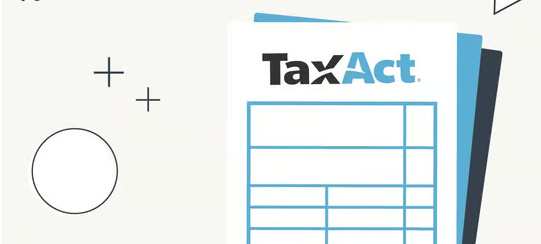Among many tax filing software, TaxAct has become the “value-for-money” choice for many taxpayers thanks to its affordable price and reliable performance. This article will systematically review TaxAct’s performance during the 2025 tax season, focusing on four key aspects: overall experience, functional performance, pricing structure, and user suitability.
Simple and Smooth Experience, Easy to Use
TaxAct’s interface design is practical and concise. It uses a logical, question-and-answer process to guide users through filling out their tax information. While the interface isn’t as flashy as competitors like TurboTax, its clear layout reduces the learning curve and makes it easy for users of all levels to navigate.
Its sophisticated error checking system catches data inconsistencies quickly, reducing the risk of filing errors. Built-in tax tips also highlight valuable deductions and credits, helping users maximize their tax refunds.
Comprehensive and Practical Features
- Multi-Level Tax Form Support
The free version supports basic W-2 tax filing. Paid upgrades cover more complex forms like investment income, self-employment income, and rental property, meeting diverse tax filing needs. - Easy Import and Upload
It supports importing data from W-2 forms and some third-party financial software. While direct integration with some high-end accounts isn’t supported, it’s sufficient to meet the basic needs of most users. - Expert Assistance
For those with specialized or complex tax needs, TaxAct offers paid expert consultation and tax filing services, providing additional protection. - Audit Support
All paid plans include free audit support, protecting taxpayers against potential IRS investigations.
Reasonable and Transparent Pricing
TaxAct offers a tiered pricing structure, making its pricing relatively affordable and particularly suitable for taxpayers with limited budgets and diverse needs.
| Plan Type | Scope | Federal Tax | State Tax | Notes |
|---|---|---|---|---|
| Free Plan | Simple W-2 Filing | $0 | $0 | Basic tax only |
| Basic Plan | Itemized Deductions and Common Credits | $24.95 | Starting at $39.95 | Supports partially expanded returns |
| Deluxe Plan | Complex plans like investment income and rental properties | $44.95 | Starting at $39.95 | Enhanced data import capabilities |
| Self-Employed Plan | Freelancers and Small Business Owners | $69.95 | Starting at $39.95 | Includes special support for self-employment |
Prices may fluctuate as tax season approaches; file early to get the best price.
Pros and Cons Summary and User Suite
Pros
- Cost-effective, suitable for diverse tax needs
- Clean, simple user interface, easy to use
- Includes free IRS audit support
- Imports a variety of key tax forms
Cons
- The interface design is rather plain and lacks visual appeal
- Limited support for direct integration of complex tax accounts
- Premium plans are slightly more expensive than some competitors
Suitable for Users
It’s ideal for users who want to handle complex tax filing needs, including investment and small business income, on an affordable budget. Beginners and those on a budget can also find suitable solutions in the free and basic versions.
TaxAct 2025 continues its consistent, robust approach, winning over many users with its reasonable pricing and comprehensive features. TaxAct stands out in the price-sensitive and feature-demanding market segment.
